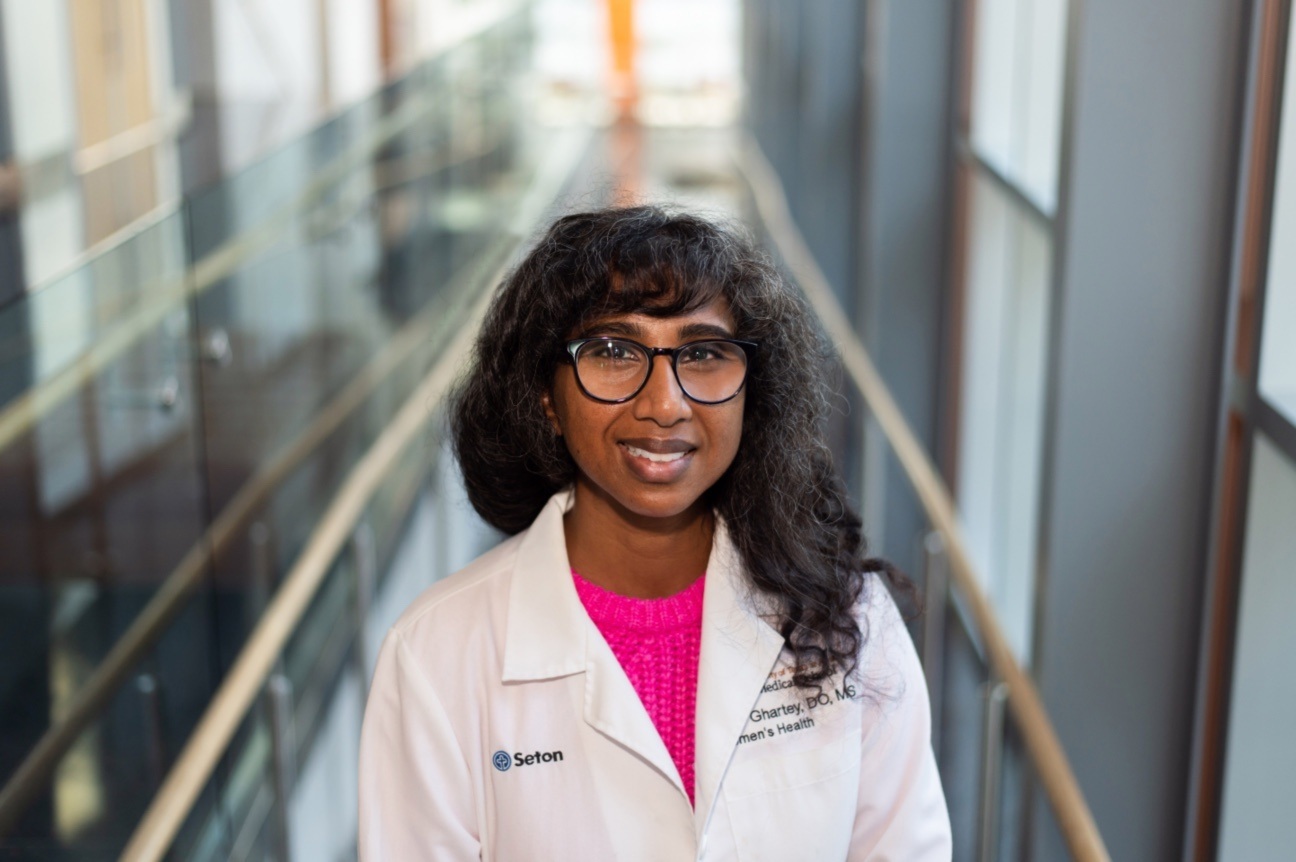This news feature is part of Dell Med’s Voices, a series of profiles that highlight the people of Dell Med as they work to improve health with a unique focus on our community.

Jenny Ghartey, D.O.
Pregnancy always comes with some level of risk, but patients of color in particular face an obstacle that exacerbates all other risk factors: structural racism.
Jeny Ghartey, D.O., assistant professor in Dell Medical School’s Department of Women’s Health and maternal medical director at Ascension Seton Medical Center Austin, is committed to helping mothers overcome barriers to successful health outcomes, whether those hurdles are high-risk conditions or health inequities.
Caring for Children & Adults Alike
Ghartey’s path to medicine began when she was a teenager: As a family friend’s five-year-old began to convulse, Ghartey’s father sprang into action.
“I remember feeling a strong desire to help, wishing I had known what to do in that situation,” Ghartey says. “Because of this, I initially went to medical school to become a pediatrician.”
After medical school, Ghartey practiced as a general obstetrician for six years. As she interacted with people who faced complicated pregnancy conditions, Ghartey felt that same sense of frustration: She wished she had the specialized knowledge to care for such vulnerable patients and was inspired to pursue fellowship in maternal-fetal medicine.
“Women may experience high-risk neurosurgical or cardiovascular conditions during pregnancy,” Ghartey says. “They need someone to advocate for them to help them achieve optimal health outcomes, someone like a maternal-fetal medicine specialist.”
Leading Difficult Conversations
Local and national health inequities in maternal health only exacerbate the issues that high-risk mothers face — a fact supported by leading medical organizations like the American College of Obstetricians and Gynecologists.
“When I have raised this topic, I have noticed that it is really difficult for staff to discuss issues related to race and racism, let alone acknowledge it exists within our own institution,” Ghartey says. “This is understandable; it’s often hard to start these important conversations.”
Ghartey currently educates the maternal care staff about structural racism as the leader on units dedicated to caring for pregnant and postpartum parents. On a regular basis, her team reports on health disparities by race in maternal care, reviews articles relevant to structural racism and engages in discussions about how to take action.
“I am in a unique position in that while I am a member of a minority group, I am not Black,” Ghartey says. “I can express my opinions without facing the typical stereotypes that might keep my Black colleagues from speaking up. Only when we recognize structural oppression can we start to see what our Black, Indigenous and colleagues and patients of color have been experiencing every moment of their lives.”